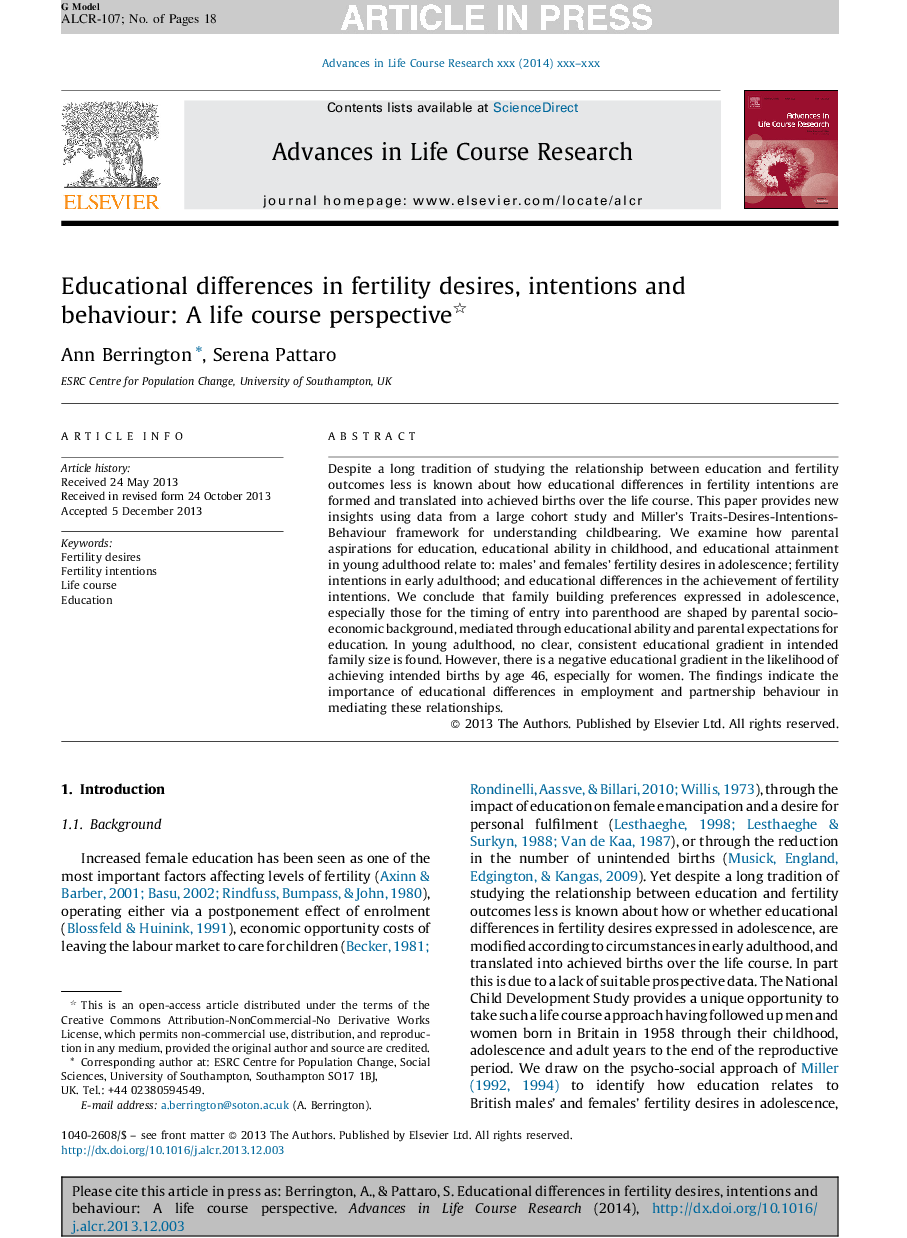| Article ID | Journal | Published Year | Pages | File Type |
|---|---|---|---|---|
| 6785034 | Advances in Life Course Research | 2014 | 18 Pages |
Abstract
Despite a long tradition of studying the relationship between education and fertility outcomes less is known about how educational differences in fertility intentions are formed and translated into achieved births over the life course. This paper provides new insights using data from a large cohort study and Miller's Traits-Desires-Intentions-Behaviour framework for understanding childbearing. We examine how parental aspirations for education, educational ability in childhood, and educational attainment in young adulthood relate to: males' and females' fertility desires in adolescence; fertility intentions in early adulthood; and educational differences in the achievement of fertility intentions. We conclude that family building preferences expressed in adolescence, especially those for the timing of entry into parenthood are shaped by parental socio-economic background, mediated through educational ability and parental expectations for education. In young adulthood, no clear, consistent educational gradient in intended family size is found. However, there is a negative educational gradient in the likelihood of achieving intended births by age 46, especially for women. The findings indicate the importance of educational differences in employment and partnership behaviour in mediating these relationships.
Related Topics
Physical Sciences and Engineering
Mathematics
Statistics and Probability
Authors
Ann Berrington, Serena Pattaro,
